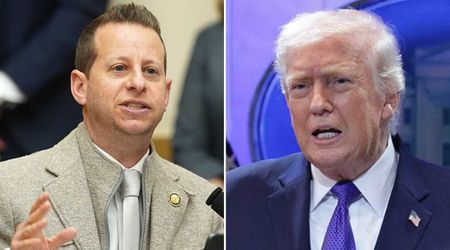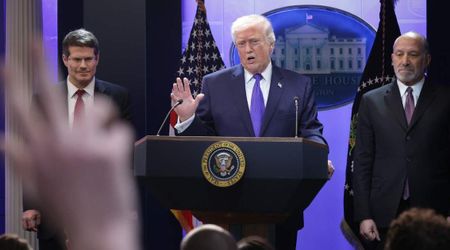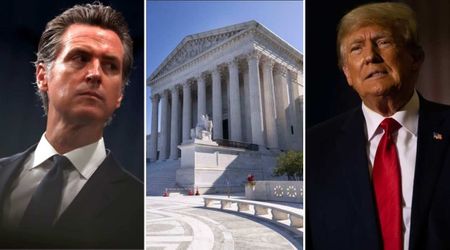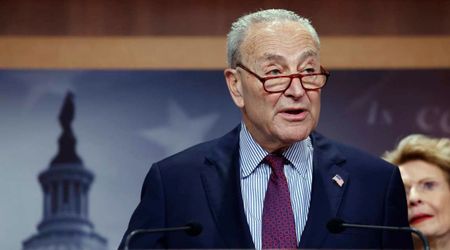Supreme Court rejects Biden administration's bid to revive SAVE plan amid legal challenges

WASHINGTON, DC: The US Supreme Court rejected a request from the Biden administration on Wednesday, August 28, to revive its latest initiative to address federal student loan debt.
The administration had filed an emergency request to lift a nationwide injunction imposed by an appeals court, but the Supreme Court denied this plea without any noted dissents. The brief order urged the appeals court currently handling the case to "render its decision with appropriate dispatch" — suggesting a need for swift resolution.
Legal setback for SAVE plan as Missouri leads challenge against Biden administration
In July of last year, the Education Department finalized a new regulation known as the Saving on a Valuable Education (SAVE) plan. This came a month after the Supreme Court ruled that the Biden administration did not have the authority to implement President Joe Biden’s earlier loan forgiveness program.
Like its predecessor, the SAVE plan aimed to ease the financial burden on student loan borrowers. However, it didn't take long before the proposal faced challenges from several conservative-leaning states, spearheaded by Missouri.
Missouri Attorney General Andrew Bailey welcomed the Supreme Court's decision. “This court order is a stark reminder to the Biden-Harris administration that Congress did not grant them the authority to saddle working Americans with $500 billion in someone else’s Ivy League debt," he said. "This is a huge win for every American who still believes in paying their own way.”
Despite the setback, a spokesperson for the Education Department affirmed the administration's commitment to pursuing lower repayment options for borrowers.
"We are disappointed in this decision, particularly because lifting the injunction would have allowed for lower payments and other benefits for borrowers across the country," the spokesperson said, adding that the Department would work to "minimize further harm and disruption to borrowers as we await a final decision from the Eighth Circuit."
The SAVE plan includes several provisions designed to ease the repayment burden on borrowers. Notably, it would reduce the percentage of income that borrowers have to repay for undergraduate loans from 10% to 5%.
Additionally, the plan seeks to reduce accrued interest and shorten the repayment period for certain smaller loans, enabling them to be forgiven more quickly.
However, critics contend that the SAVE plan could require up to $475 billion in spending without Congressional authorization. They argue that the plan should be blocked for the same reasons the Supreme Court stopped Biden's earlier loan forgiveness program.
Under the “major questions” doctrine, supported by the Court's conservative justices, federal agencies are prohibited from implementing significant new policies with major economic impacts without clear authorization from Congress.
The states challenging the SAVE plan argued in court papers that the Biden administration’s “assertion of unfettered authority to cancel every penny of every loan is staggering.” They argue that such actions overstep the executive branch's authority and violate the principle that significant policy changes with substantial economic impacts should be determined by Congress.
8th Circuit's injunction takes center stage in legal battle over SAVE plan
The legal battle over the SAVE plan started in April when several states filed a lawsuit to block it. A federal judge in Missouri initially ruled that only the proposal for shortened repayment periods should be paused.
However, in a broader ruling on August 9, the St Louis-based 8th US Circuit Court of Appeals issued a sweeping injunction that halted additional provisions of the plan.
In response, Solicitor General Elizabeth Prelogar argued that the changes proposed under the SAVE plan are permitted by a 1993 federal law. This law grants the Education Department the authority to determine the “appropriate portion” of income for calculating payment amounts and to set repayment timelines.
Prelogar criticized the appeals court's injunction as "vastly overbroad," arguing that it extended beyond the new plan and interfered with repayment terms that have been in place since 1994. She asserted that this action was "disrupting the settled expectations of borrowers who have been making payments for years or even decades."
The SAVE plan already has approximately 8 million people enrolled, benefiting from provisions that have reduced their repayment amounts.
Despite challenges in other courts, the 8th Circuit's decision has become the most significant, as it has imposed the most far-reaching injunction currently in effect, rendering those other cases less impactful.
Because of the 8th Circuit's ruling, the Supreme Court also rejected a separate application brought by another group of states challenging the plan on the same day, NBC News reported.










